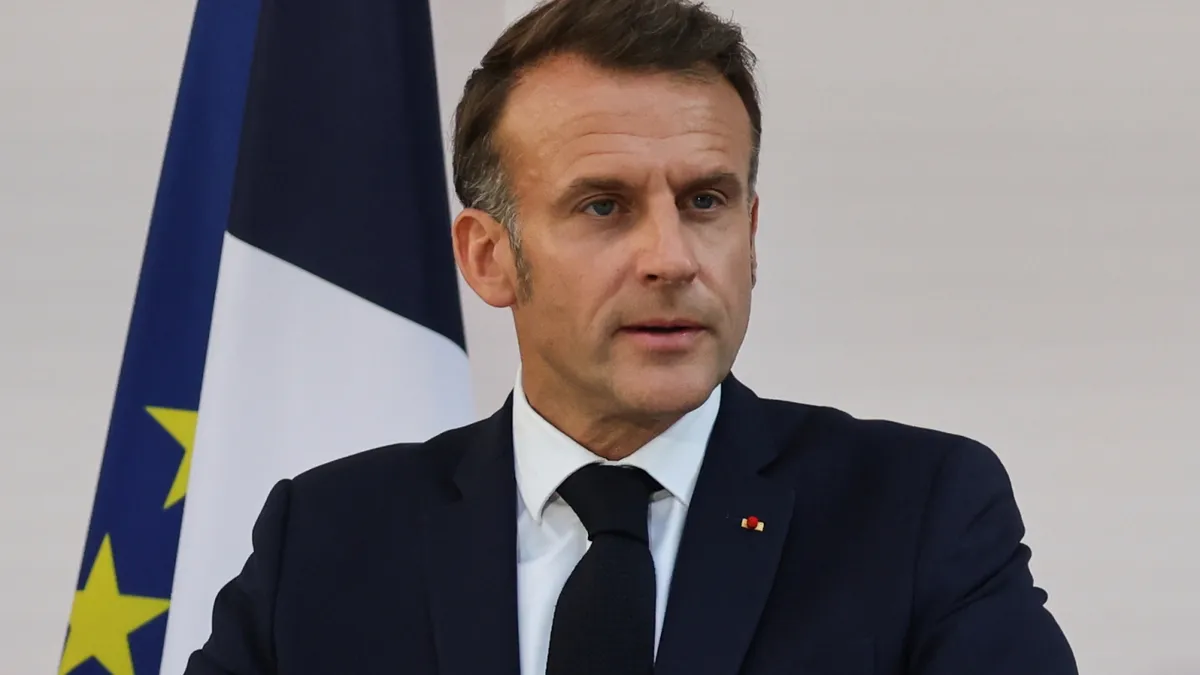
In a significant diplomatic move, French President Emmanuel Macron announced on Thursday that France will officially recognize Palestine as a state. This decision comes amid escalating global outrage regarding the humanitarian crisis in Gaza, where civilians are facing dire conditions. The announcement was made via a post on X, with Macron stating that he will formalize the recognition at the upcoming U.N. General Assembly in September.
The recognition of Palestine as a state adds substantial diplomatic pressure on Israel as the conflict and humanitarian crisis in Gaza continue. France has now positioned itself as the largest Western power to acknowledge Palestinian statehood, potentially inspiring other nations to follow suit. To date, over 140 countries globally recognize a Palestinian state, including more than a dozen in Europe.
The Palestinians aspire to establish an independent state encompassing the occupied West Bank, East Jerusalem, and Gaza, territories that were seized by Israel during the 1967 Mideast war. However, the Israeli government, led by Prime Minister Benjamin Netanyahu, has consistently opposed Palestinian statehood. Netanyahu condemned Macron's decision, asserting that it would reward militants and pose a threat to Israel’s existence.
In his statement, Netanyahu remarked, "Such a move rewards terror and risks creating another Iranian proxy, just as Gaza became." He emphasized that a Palestinian state under the current circumstances would serve as a launch pad for hostility against Israel rather than fostering peace.
The Palestinian Authority welcomed France's decision. A formal communication announcing the recognition was presented to Palestinian President Mahmoud Abbas in Jerusalem. Hussein Al Sheikh, the PLO's vice president, expressed gratitude towards Macron, stating, "This position reflects France's commitment to international law and its support for the Palestinian people's rights to self-determination."
The United States, however, has strongly criticized Macron's plan to recognize a Palestinian state. Secretary of State Marco Rubio stated on the social platform X that this "reckless decision" only aids Hamas propaganda and undermines peace efforts. He labeled it a "slap in the face" to the victims of the October 7 attacks.
France, home to Europe’s largest Jewish population and the largest Muslim population in Western Europe, has witnessed tensions spill over from the Middle East into domestic protests. Macron has previously expressed support for Israel following the October 7 Hamas attacks and has consistently condemned antisemitism. Nevertheless, his frustration with Israel's ongoing military actions in Gaza has grown.
Macron reiterated France's historical commitment to a just and sustainable peace in the Middle East, stating, "Given this commitment, I have decided that France will recognize the state of Palestine. Peace is possible." This announcement coincided with the suspension of U.S.-led ceasefire talks in Qatar, indicating a lack of progress in negotiations.
Furthermore, France and Saudi Arabia are set to co-host a conference at the U.N. next week aimed at promoting a two-state solution. Macron has been vocal about the necessity of recognizing Palestine in parallel with acknowledging Israel’s right to defend itself, thus fostering a broader movement toward peace.
The momentum against Israel has been building, as France and over two dozen mostly European countries condemned Israel's restrictions on humanitarian aid to Gaza and the loss of lives among Palestinians seeking food. Macron is scheduled to meet with leaders from Britain and Germany for urgent discussions on addressing the humanitarian crisis in Gaza, emphasizing the need for food aid and cessation of hostilities.
British Prime Minister Keir Starmer highlighted that "statehood is the inalienable right of the Palestinian people," asserting that a ceasefire would pave the way for recognition of a Palestinian state and a two-state solution, ultimately ensuring peace and security for both Palestinians and Israelis.
Since the 1967 war, Israel has annexed East Jerusalem, claiming it as part of its capital. In the West Bank, Israel has established numerous settlements, currently home to over 500,000 Jewish settlers. The approximately 3 million Palestinians in the territory live under Israeli military rule, with the Palestinian Authority exercising limited autonomy. The last significant peace talks stalled in 2009 when Netanyahu returned to power, leaving the international community seeking solutions for a viable Palestinian state alongside Israel, widely regarded as the most realistic resolution to the protracted conflict.